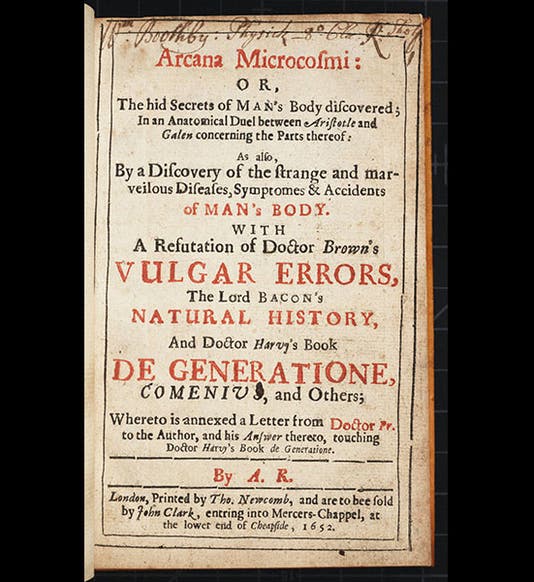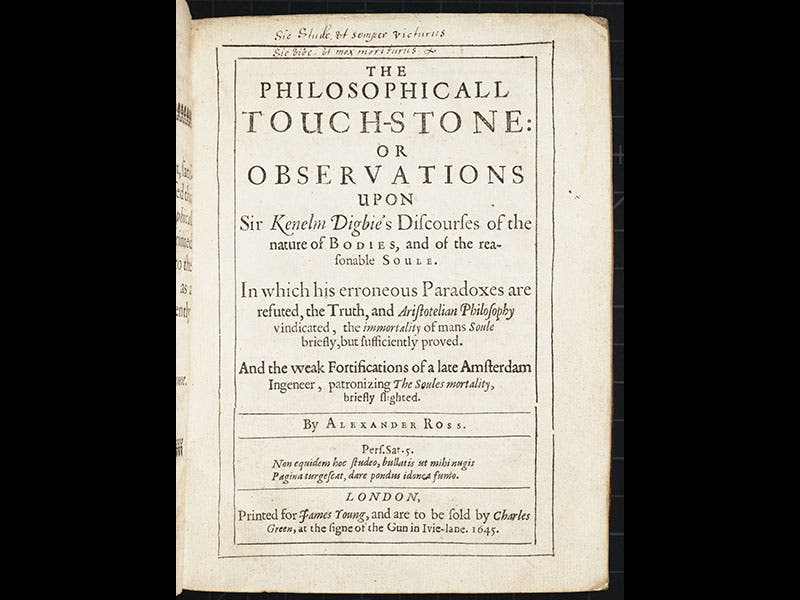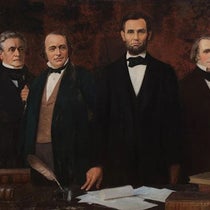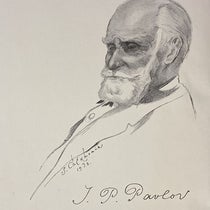Scientist of the Day - Alexander Ross
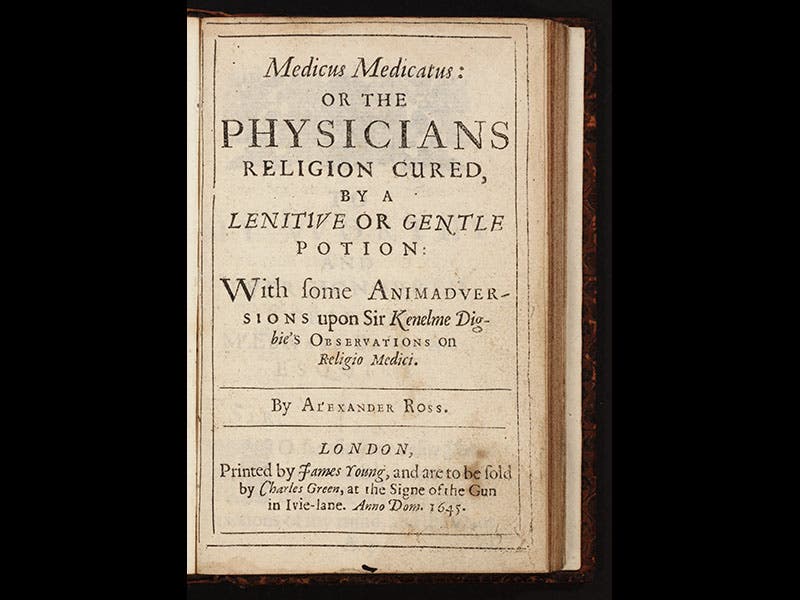
Alexander Ross, a Scottish writer, was born on some unknown day, perhaps in 1590, perhaps not (see his portrait, second image). One of the few certain dates we have for Ross is Sep. 13, 1633, when he wrote and dated the dedication of his first book, a critique of Copernicanism. So we use this date as the occasion for a Ross anniversary. Ross was a professional curmudgeon. Other people had new ideas and wrote books; Ross had old ideas and loved to critique any books that offered up new ones. But Ross had one real knack: he knew how to compose catchy (and lengthy) titles for his critiques. One of his books, for example, was called: Arcana microcosmi: or, The hid secrets of man's body discovered, in an anatomical duel between Aristotle and Galen... With a refutation of Doctor Browns Vulgar errors, and the Lord Bacon's Natural history, and Doctor Harvy's book, De generatione, Comenius, and others (1652; first image). This book, and two others by Ross that are equally querulous, repose in our History of Science Collection (third and fourth images). But we do not have this next book, in spite of our best efforts to acquire it. It has the wonderful title: The New Planet No Planet: or, The Earth no wandring Star: Except in the wandring heads of Galileans (1646).
Perhaps Ross's most outrageous publication was his English translation of the Qur’an that appeared in 1648--outrageous, because Ross knew not a word of Arabic, and had to rely on an earlier French translation. In many books of quotations, Ross is remembered for a couplet that appeared in Samuel Butler's Hudibras (1663-78): "There was an ancient sage philosopher/ Who had read Alexander Ross over." We like the ring of "Ross over," and would like to suggest it be made it into a verb and/or noun, as in: "The critic savaged the play with a sweeping ross-over." As they say, it would fill a much-needed gap in the lexicon of literary criticism.
Dr. William B. Ashworth, Jr., Consultant for the History of Science, Linda Hall Library and Associate Professor, Department of History, University of Missouri-Kansas City. Comments or corrections are welcome; please direct to ashworthw@umkc.edu.

